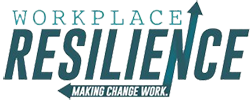 I have a memory from my childhood that comes back in my consciousness every now and then. It’s bedtime and I’m going through my evening rituals. I’m standing at the sink with my mother and it’s time to wash my face. She has the washcloth in her hand and it’s all warm and soapy. She’s ready to start cleaning my face when I grab it out of her hand. I remember the strong feeling of wanting to be independent and be able to take care of myself. However, my mom is impatient and not pleased with this action since she assumes that I won’t do it properly. She grabs the washcloth back from me so she can complete the task.
I have a memory from my childhood that comes back in my consciousness every now and then. It’s bedtime and I’m going through my evening rituals. I’m standing at the sink with my mother and it’s time to wash my face. She has the washcloth in her hand and it’s all warm and soapy. She’s ready to start cleaning my face when I grab it out of her hand. I remember the strong feeling of wanting to be independent and be able to take care of myself. However, my mom is impatient and not pleased with this action since she assumes that I won’t do it properly. She grabs the washcloth back from me so she can complete the task.
Isn’t it strange the way our brains work? When I’m together with my childhood friends, they tell me many stories and experiences that I just can’t recollect. But this moment I remember vividly and I couldn’t have been more than 4 years old. You know why? Because of the way that moment made me feel. I felt so helpless, out of control and frustrated. I wanted to be independent and she wouldn’t let me. I recall feeling proud that I wanted to take care of myself.
I think that in a way, my mom wanted to make things easier for me than they had been for her. Or maybe she wanted to be needed in her role as a mother. It’s possible that she was tired and she just wanted this task done so she could finally relax. The point is that in the process, she squelched my ability to be independent and feel that I could stand on my own two feet.
When I had my own children, I wanted to take a different approach. It was important for me to give my kids the tools they needed to feel confident and independent. I allowed my kids to make mistakes and color outside the lines. It meant that I was willing to step back when they made a mistake and allow them to work out their own issues. It also meant that at times, my children felt discomfort and even pain, and I allowed them to feel their own pain. I’m not saying it was easy, but I knew in my heart it was for the best. I wanted them to be able to feel secure in their decision-making and their ability to steer their own course in life.
I mimicked this approach in the workplace. I wanted to empower peers and my employees to confidently handle their own issues, and get comfortable with solving their own problems. I felt that it was my job to give them the tools to be successful, independent and strong. Again, it was certainly not easy, and sometimes quite disheartening, but I knew it was the right thing to do.
You probably agree with everything that I’ve shared with you thus far. Your head is nodding and you absolutely see my point. However, I’m asking you to take an honest, raw look at your life right now. It’s time to question whether you might have failed in your attempts to empower the people around you.
Maybe your enabling involves a relationship with a child. It’s easier and less stressful if you can take care of the task and be done. Maybe it’s an employee relationship. You have repeatedly handled issues because you want to make sure it’s done properly and perfectly. Maybe it’s a friend that consistently needs your assistance. Time and time again you help, because, to be honest, it just feels good to be needed.
I guarantee that you have at least one relationship that smacks of some enabling in your personal or professional life. In the moment, the action might feel good to you and to them, but the long-term effects can be quite destructive.
Make it your mission to empower others to stand on their own two feet. Eventually, they’ll be glad you did.
